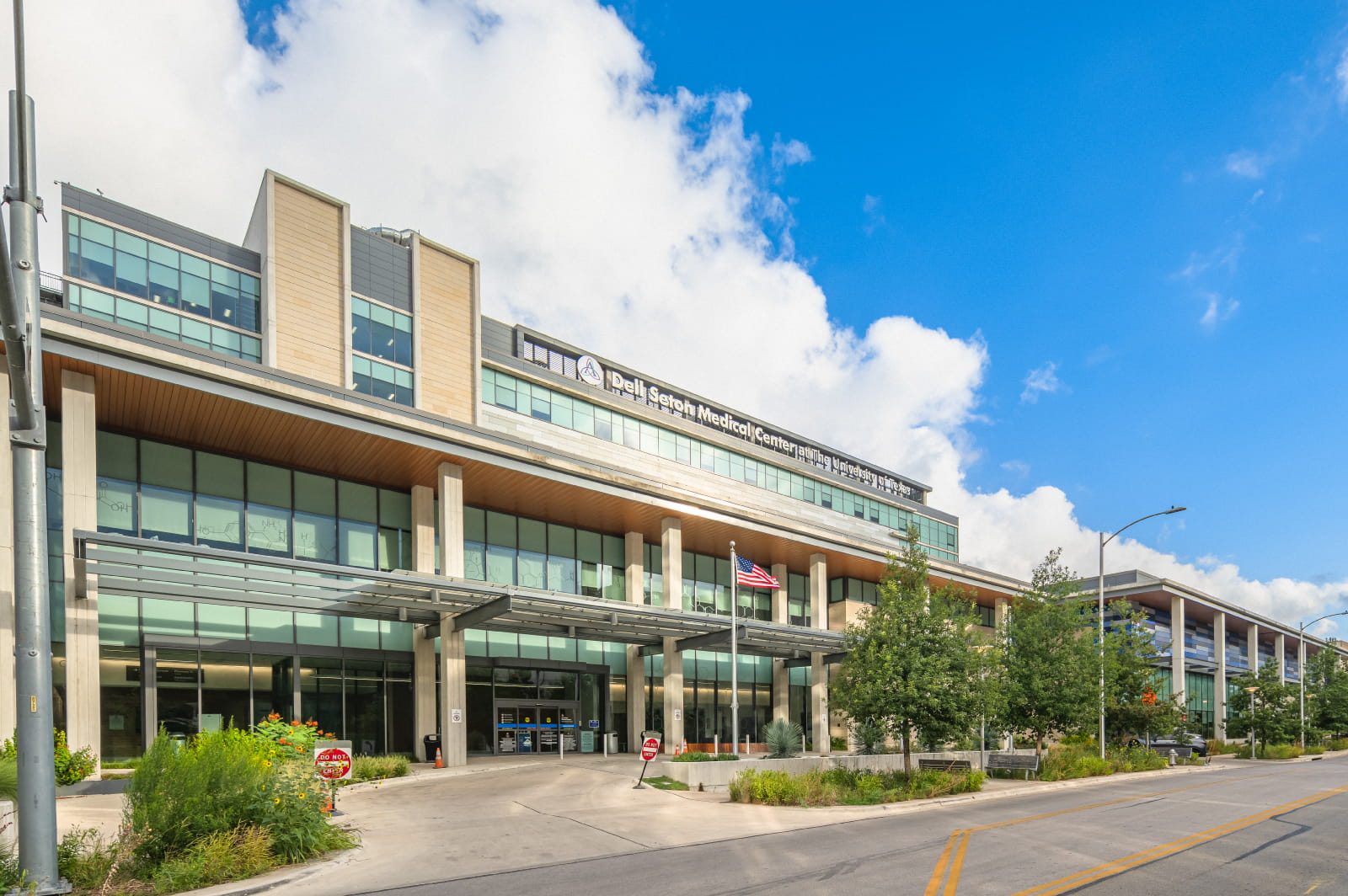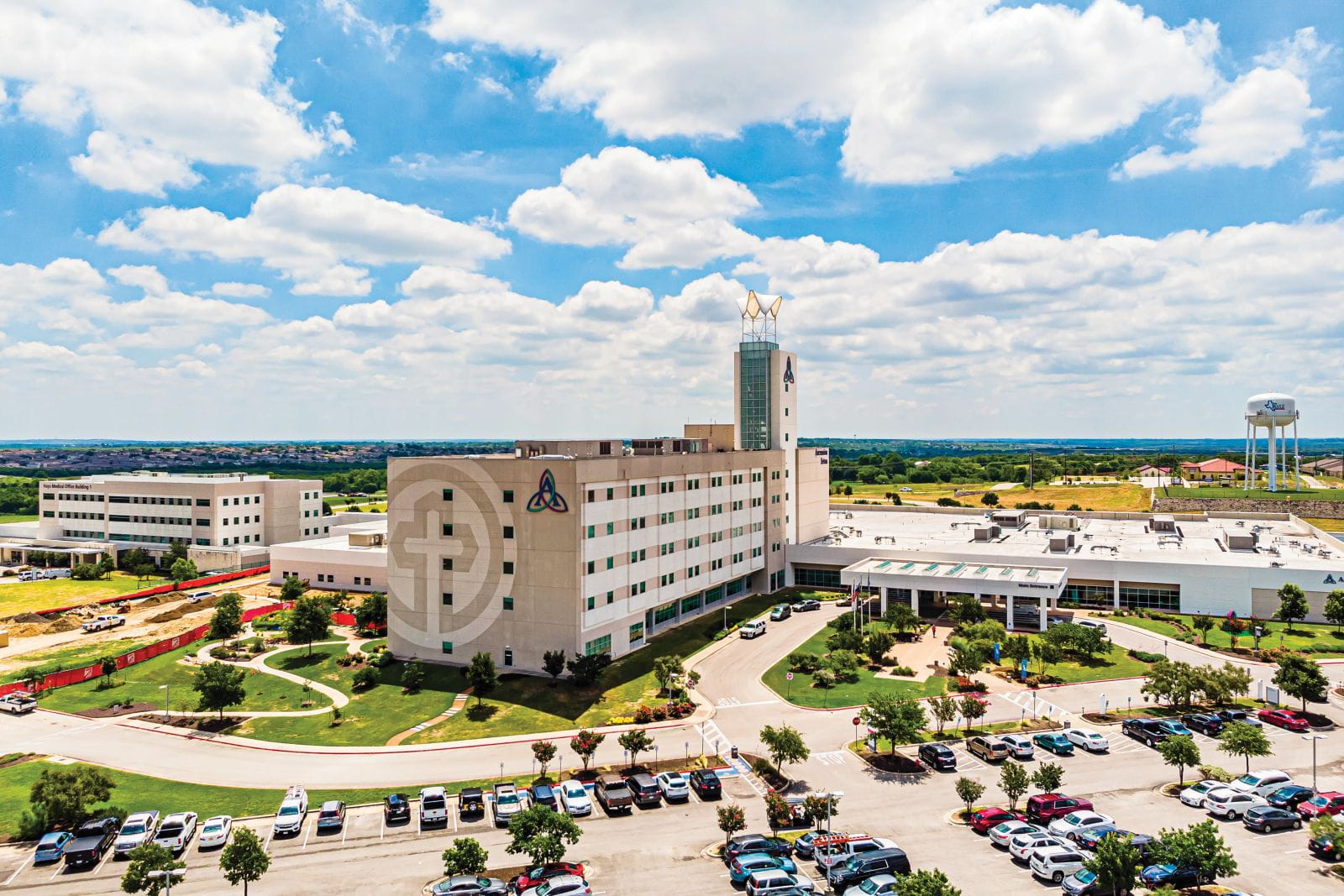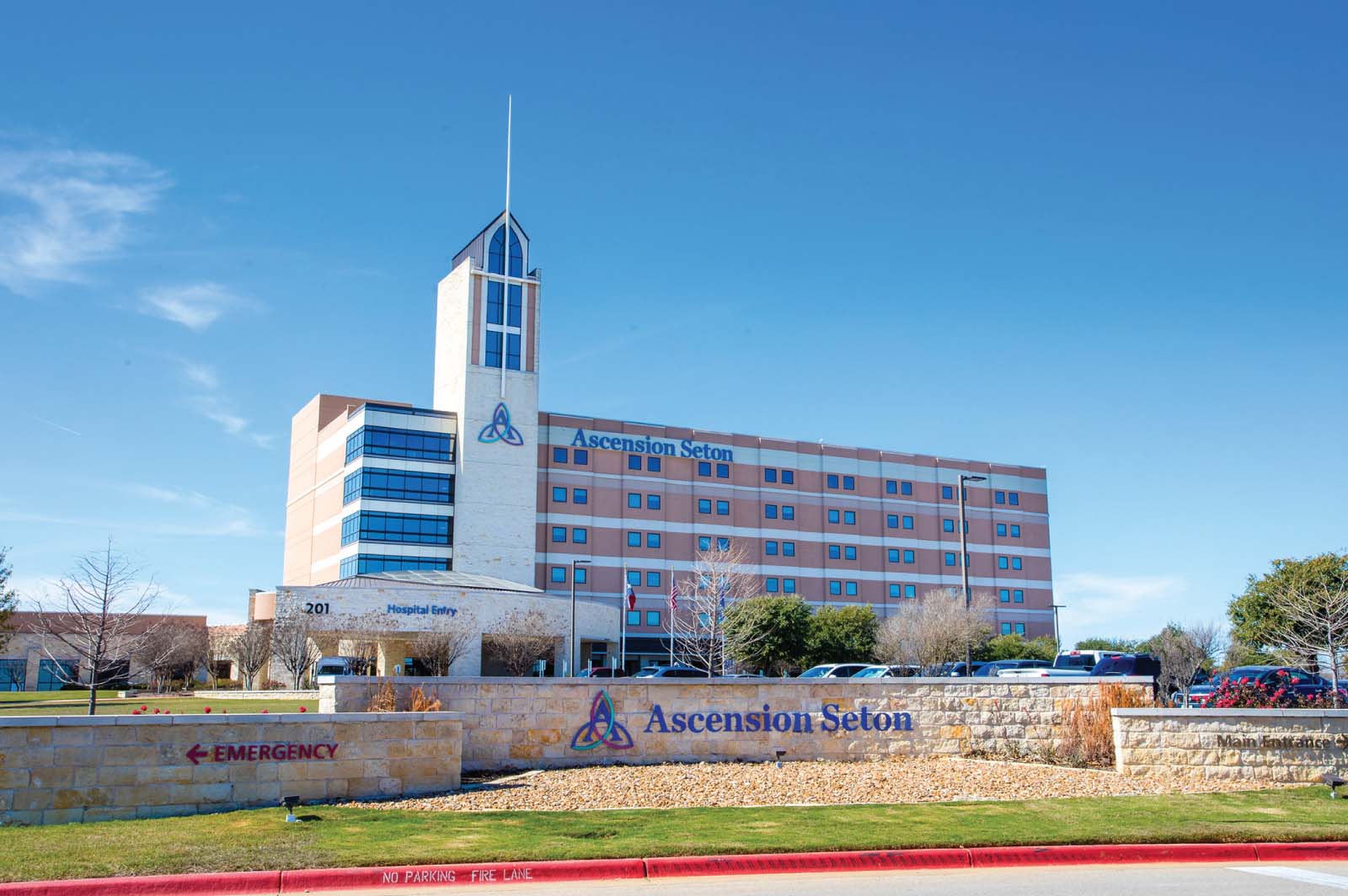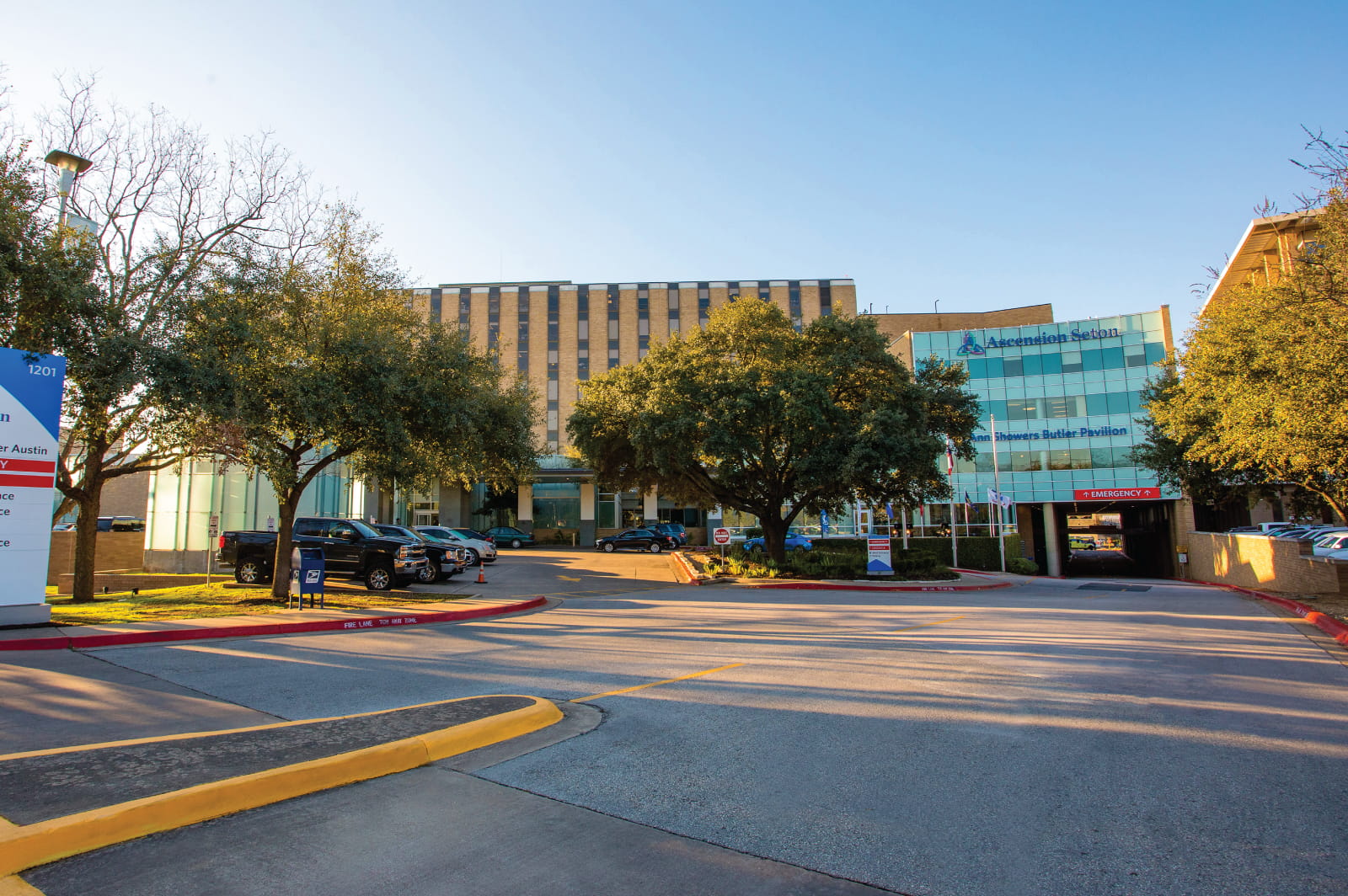
Advanced stroke care in Austin
If you or a loved one is experiencing symptoms of a stroke — every second counts. Signs of a stroke include sudden loss of balance, lost or unclear vision, face drooping or uneven smile, arm weakness and difficulty speaking. Ascension Seton stroke centers and emergency rooms in Central Texas provide advanced stroke care 24/7. Our neurologists and neurosurgeons specialize in treating stroke and transient ischemic attacks (TIA). We quickly work together to help improve blood flow to the brain, stop a brain bleed, and help prevent future strokes.
- Are you over 65?
- Do you have a family history of stroke?
- Do you smoke?
- Have you had a prior stroke or heart attack?
- Do you have high blood pressure, diabetes, high cholesterol, heart disease, peripheral artery disease, AFib, heart valve disease or sickle cell anemia?
If you or a loved one are experiencing warning signs of a stroke — sudden loss of balance, lost or unclear vision, face drooping or uneven smile, arm weakness and speech difficulty — every second counts. Call 911 and go to the nearest ER.
Ascension Seton stroke centers in Central Texas
Several Ascension Seton hospitals across Central Texas have earned the designation Primary Stroke Center, Primary Plus Stroke Center or Comprehensive Stroke Center by Det Norske Veritas (DNV). We use the latest technology and a team of stroke specialists to deliver advanced stroke care for even the most complex cases. This highly specialized stroke care helps support better outcomes at a time when you need it most.
- Ascension Seton Medical Center Austin***
- Dell Seton Medical Center at The University of Texas***
- Ascension Seton Williamson in Round Rock**
- Ascension Seton Hays in Kyle*
***Comprehensive Stroke Center
**Primary Plus Stroke Center
*Primary Stroke Center
The DNV GL Healthcare certification is based on standards set forth by the Brain Attack Coalition, American Heart Association, American Stroke Association, and World Stroke Association.
Specialized stroke recovery and rehabilitation services
Care teams at Ascension Seton specialize in stroke care and recovery. We listen to understand you and your health. Then your team of neurologists, neurosurgeons, nurses, physical therapists, occupational therapists and speech therapists work with you to create a care plan that's right for you. Our rehabilitation care team provides daily therapies and monitors your progress to help you meet your goals.
Your care doesn't stop when you leave the hospital. We offer a stroke survivor support group. And we provide transitional care in your home, an outpatient stroke rehabilitation center or skilled nursing facility. Our goal is to improve your quality of life after a stroke.
Frequently asked questions about stroke
How do I know if I'm having a stroke?
Stroke symptoms can come on suddenly. Call 911 and go to the nearest ER if you experience any of these stroke symptoms:
- Sudden loss of balance
- Lost or unclear vision
- Face drooping or uneven smile
- Arm weakness
- Speech difficulty
What is a stroke?
A stroke occurs when there is a disruption in the blood supply to the brain. This disruption can come from a blocked blood vessel in the brain or a blood vessel that ruptures and bleeds into the brain. When you are experiencing a stroke — every second counts. Call 911 and go to the nearest ER.
What should I do if I think someone else is having a stroke?
If you think someone is having a stroke, ask them to repeat a sentence back to you, smile at you, and raise both arms. If they have trouble with any of these tasks, call 911 right away. Stay with the person and note the time they began to have symptoms. This information can help the emergency room care team.
What is a mini-stroke, also called a transient ischemic attack (TIA)?
When someone experiences stroke symptoms that go away in a short period of time (typically less than an hour), it may be considered a TIA (transient ischemic attack.) When blood flow to the brain is interrupted for a short period (usually less than five minutes), it may be a sign of a future stroke. TIA is an emergency like stroke. If you experience signs of a stroke or TIA, don't wait to see if the symptoms go away.
How is stroke treated?
The sooner you get to the ER, the more options there may be for treatment. Medications and minimally invasive stroke interventions help prevent clots and dissolve blockages to restore blood flow to the brain. Endovascular procedures are used to repair a blood vessel from rupturing. Your doctors, nurses, and rehabilitation therapists help you recover after a stroke and help prevent a future stroke.
Neurocritical care unit at Dell Seton Medical Center at The University of Texas
Dell Seton Medical Center at The University of Texas is opening the first dedicated neuro critical care unit in Central Texas. This 15-bed critical care unit will be led by board-certified neuro-critical care doctors, caring for the most complex and serious neurologic conditions. Combining a highly specialized team with cutting-edge technology will allow for the creation of a destination unit, and ultimately lead to improved care for patients in Central Texas.



